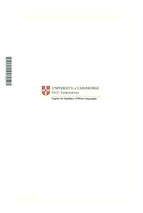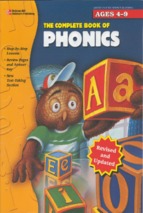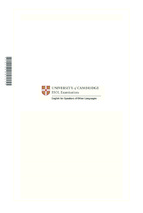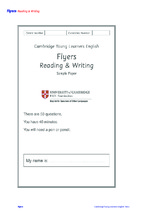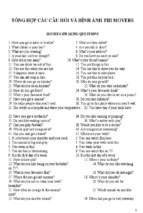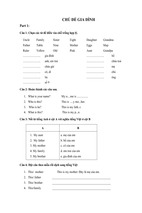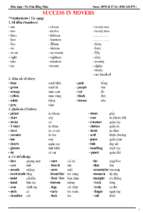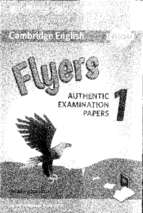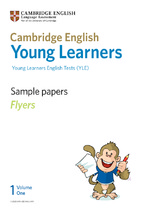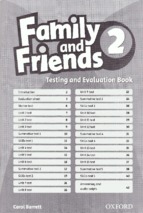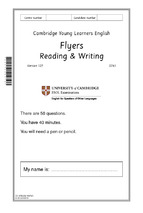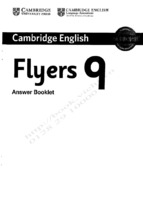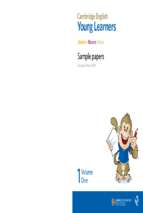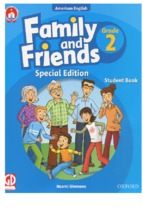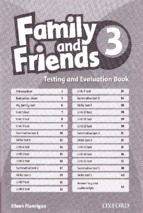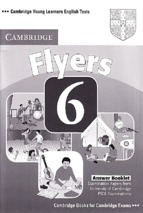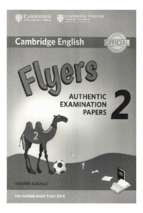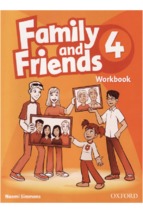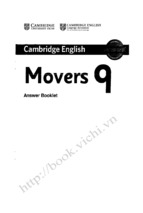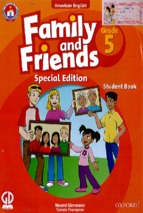LONGMAN
EXAM
ACCELERATOR
plus 2 Audio CDs
classroom and self-study preparation
for all 82 level exams
'
Bob Hastings
I
Marta Uminska
I
Dominika Chandler
CONTENTS
_
. . Introduction
Exam information
WRITTEN EXAM
r- ·- - ~- ---~ - ·-- -· - ·- · - --· -- ·- -- - ·
I
.
- - -· - -~· - ·- - -- - ---- - - - . ---- -~- - . - - -., - - -- -. -- -. -
..----- .-..----.--.--.--,---'--,_. _-'- -.--.-.----.---'-----------.- --
- - · - - - - - - · -- -~ --- - - ·- -l
i
_
m
--1
PEOPLE
--.~.-------
~
HOME
1r---~-~--~.~.~-----~---.--.~;
I
I
SCHOOL
1-·· _· _· _-- -. .---- -- .- .......-.-...- -.-. --.-- .... --.... -- ---- ...
i
~
----·--·-- --···1
WORK
~
FAMILY AND SOCIAL LIFE
~
- ·----------------------·--------------·- -~l
rI::
· i
I
FOOD / SHOPPING
I
CULTURE
i
1- - - ;;l:~~~~~~;~;~SM--:
III~
-- -
i
- g-~;;L~~~ SPORT~---~---~~p;~
WRITING
m
General tips
~~
m
Description (of a place, person or event )
&DJ
Review
m
'For and against' essay
_
---~--==J
Opinion essay
Formal and semi-formal
letters
--- --_._-------.-. _-- _..
.. -_ .-_ .. _.,'..
.. ...
...•
-----_ .,-----,.--.--'. _ -
-_._ ._- ..
---,._-.------ - -.-._---. __ ,-----'_
-'-' -' - -.-"
-'---. - "'- - -' - "' - - -"
-- -"
'- -"- ' - "
' --- ~-
_---_.-•..... __••....._-. __ ... -... _-_..-...__ ........- -_ .. _.-_., _._------
.•.
I
1
1
NATURE AND ENVIRONMENT
1
-
I
~
..
I
I
STATE AND SOCIETY
ENGLISH AND THE ARTS
Informal letter
!
SCIENCE AND TECHNOLOGY
---~------j
--~- - - ~ --~-----~--~-
LArticle
.
ORAL EXAM
ENGLISH AND THE ARTS
i
FAMOUS FILM QUOTES
_
r-~~~~--~~~~~~--~~---__J
!
I
FICTIONAL LITERARY CHARACTERS Bm
[
ENGLISH AND THE ARTS
SPEAKING
EXTRA MATERIALS
~~
Extra materials for the Thematic Part
rt
Answer Key - Lexical-grammatical Part
2
~
QUOTING SHAKESPEARE
l 0~~~.~o~~!~di~r~~~~ ...... .. ========-= _.~
-
~
~
-
~
-~
\Ilil l
w
IIlId~ luul\l Ltltl\lI'lltl 11111 1" 111.1 1,1·,1111111
IU' I,lllhlll l y, ",dltl"~ , ulI ll'II1HtIIHI~, ti ll' 1111 11 11.
1'11 11 '1 1
.111 111111 1'\, 11111
III h h IlItHI -litlolt-\ '1 111
1'111\1.
" , "', I N
Wllld 10lllldlllK
MII I!!IIII ' I hoht'
"Xf' ~ I I WUIlf«JII
( 11 ,111 1111 ,11 U l1Hh '( tl o n ~:
pro,loum
Excerpt (ram a novel
Radio news item
Mul tiple choice
True/False/No Information
,
. Matching
phrasal verbs
..,J
i WORD SANK
~
\ in a company, work and money, adjectives
funerals, other celebrations, friends and
IilIiI J
acquaintances, relationships, leisure time,
!
: FOOD/SHOPPING
i
VICES
AN 0 SER
,
IImIImiI
I
i
TOURISM
IIIImIIm
·
rI .·. .-·_-·. -
...
-·- . . --
I HEALTH/SPORT
I
_ _ _~_
10
TECHNO LOGY
IJmIIBfJ
NATURE
AN-O·---·. ·-·--.. '
ENVIRONMENT
ImIm
Tr:;:;~-"-in-g-b-y-ro-a-d/-d-~i~-g:~-y~ii~g:
w
IIImBD
!?!:C:~m~Q"~"15;9~"r.
Informal letter
'1
I
Multiple chOICe
WOR D
;, ~xall1:w9 R KOuT
. Connections In a text
1
! conjunctions and relanve
pronouns
_
- -- ...
~ ~:f~~:g:~:e-~~-'p-"~c-o-t-o-s--
Story
examWORKOUT
Corldit'jc;na'is'iinCi sentences
"Narr~d"~e" tens"e"s
with wish
~~~~~~~~~~
-- -
Vocabulary used in film
J
:'~:'~~~~.Kg\!!.
,
Persuading
I.. M-~~-olog~
l animals do, the environment, threats to [he
I environment, protecting the environment,
action for environmental sustainability
. Matching
--~ --·----- ---
----
I Multiple choice
I examWORKOUT
CO~":;tent" "a"r"(fg~"ammar linkers: I' The "~orre(ia~swer: the same meaning
1examWORKOUT
:r
linking words
'
~
civil rights and liberties, politics, the economy,
religion, crime, forei?n affairs
1
-.J
~,
Multiple choice
~"~~mw.9"~,~9"ln:
~ Interview
, Matching
==
Talking about photos
examWORKOUT
:'~~i~W-rgR./«~\!!.
.
Book review: content,
Descrip[ion of an event
examWORKOUT
bet~i{ls" iii"<1ke" tile
descripl"iol1 come alive
"I"ridj"~ec'i"s"p"ee"cii""
The correct word or phrase in
a given context
-- IImfA~;;~i;f;~;;., a mag~~i~-e
! disasters, trees, flowers, birds, animals/things
Sentence transformations
I
....-J Matching
II!Ilil
W ORD BANK
WORD BANK
- - --
• (onversat';,;;-- - - - ---True/False/No Informat,on
~'. Arti~i;,"i;;m-; mag;;'-
Areas o.f science, scientists at work,
technology, computers
b';~h~s of government,
Speaking on a set topic
structure, vocabulary
Health the human body, Sickness and hea'th~~'e (;.;,; a m~ga;~n~ n
InJunes, dlSe.ases/'lInesses, dlSab,lItles, health
.1, Matching
STATE AND SO CIETY I The three
Fo';iiial style ··· ··
~
BA NK
-Landscape f~;t~;;s: th-e ~e-;'~h; r, ~atural
iiii'\ Intervie;
~; Multiple chOice
exam WORKOUT
examWORKOUT
i Predicting the content of the recording
~--J~~I__---
I
-~
Opinion essay
examWORKOUT
'P'h'rases'{c;r'negotiating
Sentence transformations
.
!".'!'i~mWg/:\Kg,!.!.
~
examWORKOUT
"Srru"ctur(ng "a: "le"tter
Disagreeing politely
examWORKOUT
) True/False/No Informa[ lon
Art, people's reactions to art, literature, ..------Art~e-fr~~ ;;;"--;;-g~;;;;
~~~'m':~:~c, vISual arts, theatre,
Matching
~"~~mw.-g"~"~~?ln:
Word building
I
~ Arti~,-;:f;;,.;;;-..;:;;;g:;:;;;-~ R~~;;d;d-m-e;;age -
Developing your description
i
i
~
...;iltravel.
examWORKOUT
"I"rltroducrion'"to 'a 'for and
against' essay
...,/
,
holidays, accommodation, public transport,
phrasal verbs
-J
WORD BANK
12
Talking about photos
Word'family"sfiaring
a common root
WORD BANK
SCIENCE AND
Error correction
examWORKOUT
Re"'a"iive"c"la"uses"
examWORKOUT
care professionals; Sport: spor[~generat sports,
football, basketball, tennis, sports equipment,
people in sport, sporting events
~
I
I
I
~------~------------_-------_+!~W~O==R~D~
BANK
I CULTURE
,
'~ ___ ~m_"
t, One or two correct answers
shops, at the checkout, bargains, paying,
I banking, complaining
•
1
,aIr travel. sea travel, Journeys and tnps,
examWORKOUT
'p"repa~(ri"g"argu"mentS for and against
I
I1~:::f:::,Knut;;~~t~,p;eparing
food;
:-E;~~;Pt
from-~;;_~~~I ---'.IRMult'ple
adiO-Ph~~~:in
Shopping and serv,ces: shopping, types of
l Matching
chOIce
I WORD SA NK
TRAVELLI N G AN 0
Structures"with"the infinitive
-.s~;~~y I Matching
I ".'!'i~l:>:"y'g.~.Kg!!.!.
i Listening for gist
I
'
i phrasal verbs
!
more than a list of objects
'For and against' essay
examWORKOUT
I
J. . . . i
I:!~~;:~: and the Job market, working
I FAMILY AND SOCIAL I R~lati~~;,f~..;:;ily;;;a~ge..;:;;..;_t~, fa";:;iiy~~d '" " rmr-B';;;k;~;i~;:" ----I
money, family celebrations, births and
i Matching
I LI FE
Speaking on a set topic
____ ..J_I·n·clude·aii"t"h·eE.O.ints required by lI:'e task
i Matching
m'Lecture'
True/False/No Information
, to describe jobs, skills and qualities,
I!EImI
A shou ld also be taken into account. Undoubtedly,
~ m e book is the Thematic Part, as its coursebook
~ - cs teach ers to use it in class. The Reference Part
=-_::=5 exam strategies and language functions which are
.?G ro the ~.~~!!l.~?~~?!-!~ and ~.~~!!l,l;.A.S.~ exercises in
- 'c Part. This enables both the teacher and students
- _ . m e practical aspects of the language as well as to
eloping exam strategies.
:" aT
=-=
r hand, whenever there is a need to refer to the
-e :>ook containing theory, it can be easily done due to
being marked with specific colour and reference
~ --e referen ces to the Lexical-grammatical Part allow
. ion of exam task types as well as lexical and
crures typically tested in the Use of English part
• • 00
PAGE 63
PAGE 63
~.~~~.~?~~«?~~ EX. 0 • • PAGE 63
~~~~:~.S.~ EX. 0 PAGE 63
THE NUMBER OF CONTACT HOURS
The number of contact hours provided by the book depends
on the way the material is used. If you would like to discuss all
the contents of the book in class, you would need 90+ contact
hours. If you would like to cover only the Thematic Part in class,
that would take about 60+ contact hours.
However, if you do not have so much time at your disposal but
would still like your students to revise all the available material
before the exam, you could treat large parts of the book as
self-learning material and assign the Reference Part as well as
Writing and Vocabulary sections as homework.
CHECKING STUDENTS' PROGRESS
Short vocabulary and grammar tests (provided as
photocopiable material in the Teacher's Book) could be given
to students after each unit has been covered.
r
5
STATE SCHOOL-LEAVING EXAMS IN ENGLISH AT B2 LEVEL
Most state school-leaving exams in a modern foreign
language are compulsory for all the students wishing to
graduate from high school. They are typically provided
at two levels of proficiency: the 'lower' level, which
corresponds to the A2/B 1 levels of the Common European
Framework of Reference scale, and the 'higher' level, whose
level is usually described as B2.
The 'higher' level of the exam typically comprises two parts:
the written and the oral exam.
WRITTEN EXAM
The typical set-up of the written exam includes:
listening Comprehension
In this part of the exam, students will usually listen to
3-4 authentic or semi-authentic recordings. Each of
the recordings will be played twice. The recorded text
types might include conversations, lectures, discussions,
narratives, announcements, instructions or media broadcast.
There will usually be one task for the candidates to do
for each of the recordings. The typical task types include:
true/false/no information, various types of matching and
multiple choice tasks and short answers to questions.
Reading Comprehension
In this part of the exam, students will usually read 3-4
authentic or adapted texts. The text types might include
newspaper articles, short stories, letters, emails or
informative texts of various kinds. There will be one task
for each of the texts for the candidates to do. The typical
task types include: various types of matching and multiple
choice tasks, true/false/no information and gap filling.
Use of English
This part usually requires reading 1-4 adapted texts. The
text types are similar to the ones found in the Reading
Comprehension paper but they are usually shorter. Typical
tasks include: multiple choice, open cloze, word building
and error correction. There is also one more type of task that
is often found in the Use of English part of the exam that is
not based on a continuous text: sentence transformations.
This task focuses on rewriting single sentences according to
the instructions given by the exam task.
Writing
In this part of the exam, the candidates are usually supposed
to produce one or two texts. The exam rubrics will state the
communicative aim and the context of the writing task as
well as the word limit that the candidates should adhere to.
Depending on the task type, the candidates might also be
given the title that they should use for their composition,
or the beginning or finishing sentence. Apart from using
correct grammar structures, appropriate language register
and a wide range of vocabulary, the candidates will need
to make sure that their text is logical and coherent and
that it achieves the communicative aim outlined by the
exam task. Typical task types include various types of
formal and informal letters, various types of essays, a story,
a description, a review and an article.
6
ORAL EXAM
The oral exam might include some or all of the following
components:
Discussion
In this task, the candidate is supposed to have
a conversation with another candidate or with the examiner.
Usually, the candidates are required to discuss their views on
a statement supplied by the exam task. Proper turn-taking is
important, so the candidates should respond appropriately
to what their partner says and speak in a polite and
respectful manner.
Talking about photos
In this part of the exam the candidates are supposed to talk
about a set of pictures. Quite often, they will be asked to
start by describing one of the pictures, and then compare
and contrast it with the other one(s). However, the task
itself is not so much a detailed description of the pictures,
but more a reflection on the problem that is shown in
them. Thus, the candidates should not limit themselves to
describing the picture(s) in great detail, but should try and
develop their speech by speculating about the scenes shown
in them.
Role play
In this task, the students (or the student and the examiner)
are supposed to assume roles outlined by the exam task
and have a guided conversation together. The task will give
the context for the conversation, and will often include
a list of issues that the speakers should talk about in their
conversation. The speakers must say things consistent with
the role they are playing, as well as use correct grammar
structures, language register and vocabulary.
Speaking on a Set Topic
During this part of the oral exam, the candidates are asked
to give a short speech about a topic or to present their
opinion in response to a statement. They might also be
asked to narrate an event or to describe something. It is
important that the candidate's speech has a clear and
logical structure, and it must also include all the information
required in the exam task.
Various factors are taken into account when evaluating the
student's performance in the spoken exam. It is useful to
remember that achieving the communicative aim of the
task is as important as the range of vocabulary, fluency and
language accuracy. Additional points are often awarded for
correct pronunciation and intonation.
er.
on
~
is
y
REFERENCE
PART
WRITTEN EXAM
n
• LISTENING COMPREHENSION
• READING COMPREHENSION
)
• USE OF ENGLISH
• WRITING
ORAL EXAM
• DISCUSSION
• TALKING ABOUT PHOTOS
In
• ROLE PLAY
• SPEAKING ON A SET TOPIC • Presenting your
opinion
• SPEAKING ON A SET TOPIC • Narrating or
describing
7
The types of tasks used in this section of school-leaving
exams may include: matching, a multip le-choice test,
a true/false/no information task, a task which requires
you to select ei t her one or two correct answers and a task
in which you give short answers to questions.
Recordings can include announcements, instructions,
rad io programmes, interviews, reports. The recordings are
usually played twice.
TRUE
NO INFORMATION
1 The order of the sentences corresponds to the
order in which the information necessary to
answer them appears in the recording.
2 A statement is false when the statement and the
recording contradict each other: they cannot both
be true at the same time. We can say there is no
information when the statement could be true, but
the recording does not say so.
examTASK
o 13 .h.}")
You are going to hear a short radio
programme about a cultural event. Are the
statements true (T), false (F) or is there no
information (NI)?
• Think about specific words which might appear
in the recording, e.g. synonyms of the words or
phrases used in the questions.
2 The same content will be expressed in the
recording and in the question using different
words. This may be done by using synonyms, e.g.:
He works for the army. = He's employed by the
military.
I managed to persuade her. = I succeeded in
convincing her.
1 The Multicultural Festival is the town's main
attraction.
2 University students came up with the idea
of the festival because they felt enriched by
contact with foreign students.
3 Steve mentions an event at which participants
will be able to learn to make traditional
costumes.
4 There will be a lecture on multiculturalism in
England during the festival.
5 The festival is partly financed by the local
government.
6 Steve asks people to contact him with ideas
because he's worried there won't be enough
or through the use of antonyms, e.g.:
They were narrow-minded. =They were not very
tolerant.
events.
TASK ANALYSIS
•
Read the tapescript on page 164. In the statements
you marked/alse, underline the words which also
appear in the recording. Change the statements so
that they are true according to the recording.
•
Read the tapescript on page 164. Next to the
statements you marked true, write down the
words which are used to communicate the same
information in the recording.
o
8
I
EXAM TIPS
1 Take advantage of the time before the recording
starts.
• Read the instructions carefully. You will find out
what kind of text you are going to hear, who is
going to speak and what they will speak about.
Try to imagine what they might say.
Grammatical paraphrases may also appear, e.g.:
They haven't met for ten years. =The last time they
met was ten years ago.
3 If the same word or phrase appears in both the
recording and the question, it could be a trap. In
these situations, ask yourself, 'Is the meaning of the
whole sentence really the same in the question and
in the recording?'
4 The questions are always about the content of the
recording. If a statement makes sense according to
your general knowledge or experience, that does
not necessarily mean it is the correct answer in
the exam task. Remember that the correct answer
is the one which agrees with the content of the
recording.
FALSE
The recording in th is task is often an informative text and
the questions are generally about the facts given in the
recording.
GENERAL TIPS
• Read the questions and the available answers in
order to find out what kind of information you
need to extract from the recording.
I
look at the statements you marked no information.
Match them to the following explanations.
a His motives are not explained.
b The exact topics are not given.
,n d
MATCHING
MULTIPLE CHOICE - SHORT
The audio material in this type of task usually consists
of four or five separate recordings on a similar topic.
The exam task will require you to match the recordings
to sentences summarising their content or to headings.
There will be at least one extra heading or sentence which
doesn't match any recording.
RECORDINGS
In this type of task, you will hear several short recordings
(conversations or monologues). For each recording, there
will be one question about specific information, usually
with three options to choose from.
EXAM TIP
EXAM TIPS
The essence of this task is identifying the gist of
each recording, or the element which makes it
different from the others.
2 Always listen to each recording to the end before
matching it to an answer.
3 When you listen for the first time, note down the
answers you are relatively sure of. When you listen
for the second time, check those answers and
complete the remaining ones.
The recording may contain words which appear in
the incorrect options. Hearing an individual word is
not enough to choose the correct answer. Listen for
words and phrases associated with the answer you
choose, and think about why the remaining options
are wrong.
examTASK
o 13-51·&1
You are going to hear people talking in five
different situations. Choose the correct answers.
examTASK
1 You are going to hear a couple discussing their
o 13-51oE'
travel arrangements. How are they going to
travel?
You are going to hear four students
talking about living abroad as part of the Erasmus
programme. Match speakers 1-4 to statements
A-E. There is one extra statement that you do
not need.
A by car
B by plane
C by train
1
2
2 You are going to hear a man talking about how
he accepted a job in a distant country. Why did
he do it?
3
A He was offered a higher salary.
B He preferred to live in a warm climate.
C He wanted a change.
4
A I've found it difficult to adapt to certain cultural
differences.
B I've managed to turn one disadvantage into an
advantage.
C I've made many lifelong friends.
D I've only encountered one difficulty, and I've
received help with it.
E I disagree with the stereotyped view of the
Erasmus experience.
3 You are going to hear a woman who works in the
film industry talking about her friend's job. What
does he do?
A He is a make-up artist.
B He is a cameraman.
C He is an actor.
4 You are going to hear a man leaving a message
on voice mail. What is the purpose of his call?
A to confirm a meeting
B to cancel a meeting
C to change the date of a meeting
TASK ANALYSIS
5
o
Answer the following questions on individual
sentences in the exam task.
A What cultural differences does the speaker mention?
B What was the disadvantage? How was it turned
into an advantage?
C Who are the friends? How does the speaker express
the belief that they'll be lifelong friends?
D What was the difficulty? What help was available?
E What's the stereotype? In what way does the
speaker disagree with it?
5 You are going to hear a conversation between
two friends. Where are they?
A in a museum
B in a library
C in a bookshop
TASK ANALYSIS
•
•
Read the tapescript on page 164. Underline the
words and phrases that helped you choose the
correct answers .
Find words in the tapescript which appear in the
incorrect options. Identify the difference between
the incorrect option and what the speaker says.
9
,n d
MATCHING
MULTIPLE CHOICE - SHORT
The audio material in this type of task usually consists
of four or five separate recordings on a similar topic.
The exam task will require you to match the recordings
to sentences summarising their content or to headings.
There will be at least one extra heading or sentence which
doesn't match any recording.
RECORDINGS
In this type of task, you will hear several short recordings
(conversations or monologues). For each recording, there
will be one question about specific information, usually
with three options to choose from.
EXAM TIP
EXAM TIPS
The essence of this task is identifying the gist of
each recording, or the element which makes it
different from the others.
2 Always listen to each recording to the end before
matching it to an answer.
3 When you listen for the first time, note down the
answers you are relatively sure of. When you listen
for the second time, check those answers and
complete the remaining ones.
The recording may contain words which appear in
the incorrect options. Hearing an individual word is
not enough to choose the correct answer. Listen for
words and phrases associated with the answer you
choose, and think about why the remaining options
are wrong.
examTASK
o 13-51·&1
You are going to hear people talking in five
different situations. Choose the correct answers.
examTASK
1 You are going to hear a couple discussing their
o 13-51oE'
travel arrangements. How are they going to
travel?
You are going to hear four students
talking about living abroad as part of the Erasmus
programme. Match speakers 1-4 to statements
A-E. There is one extra statement that you do
not need.
A by car
B by plane
C by train
1
2
2 You are going to hear a man talking about how
he accepted a job in a distant country. Why did
he do it?
3
A He was offered a higher salary.
B He preferred to live in a warm climate.
C He wanted a change.
4
A I've found it difficult to adapt to certain cultural
differences.
B I've managed to turn one disadvantage into an
advantage.
C I've made many lifelong friends.
D I've only encountered one difficulty, and I've
received help with it.
E I disagree with the stereotyped view of the
Erasmus experience.
3 You are going to hear a woman who works in the
film industry talking about her friend's job. What
does he do?
A He is a make-up artist.
B He is a cameraman.
C He is an actor.
4 You are going to hear a man leaving a message
on voice mail. What is the purpose of his call?
A to confirm a meeting
B to cancel a meeting
C to change the date of a meeting
TASK ANALYSIS
5
o
Answer the following questions on individual
sentences in the exam task.
A What cultural differences does the speaker mention?
B What was the disadvantage? How was it turned
into an advantage?
C Who are the friends? How does the speaker express
the belief that they'll be lifelong friends?
D What was the difficulty? What help was available?
E What's the stereotype? In what way does the
speaker disagree with it?
5 You are going to hear a conversation between
two friends. Where are they?
A in a museum
B in a library
C in a bookshop
TASK ANALYSIS
•
•
Read the tapescript on page 164. Underline the
words and phrases that helped you choose the
correct answers .
Find words in the tapescript which appear in the
incorrect options. Identify the difference between
the incorrect option and what the speaker says.
9
~II
MULTIPLE CHOICE
This type of exam task requires you to select the correct
answer out of fou r options.
EXAM TIPS
1 The order of the sentences is the same as the order
in which the relevant information appears in the
recording.
2 Every question requires you to eliminate incorrect
answers. These are in some way similar to the
content of the recording, so you have to notice
what it is that makes them false, for example:
a the option is too general and suggests that
something 'always' happens, while the recording
says that it happens 'often' or 'frequently';
b the answer contains one of several points
mentioned in the recording, but not the most
important one, while the question requires you
to find the 'main' or 'most important' point;
c there is a similar statement in the recording, but
it refers to something or somebody else;
d the answer seems correct according to your
experience or general knowledge, but it does
not agree with the content of the recording.
• r.tj',i~f.i
•
,it, tJ
Listen to the recording again and read the
tapescript on page 164:
a Write down the words used in the recording
which helped you choose the correct answers.
QUESTION WORDS USED IN THE RECORDING
1
2
3
4
5
b Match the incorrect answers below to the types
of mistakes given in the exam tips.
ANSWER
TYPE OF MISTAKE
lD
2A
3C
4D
58
examTASK
o 13·n+j
You are going to hear an interview with
a young person who is hitch-hiking. Choose the
correct answers.
Chris broke a record when he hitchhiked
A between two cities.
B 25,000 kilometres.
C to the Middle East.
D around the world.
2 With regard to safety, Chris says that
A
B
C
D
he feels quite safe everywhere.
reckless drivers are a constant problem.
a male hitchhiker has less to fear if he's with a girl.
you have to decide if you trust people enough.
3 According to Chris, one advantage of hitching
at a petrol station is that
A you can spend the night there.
B there's food and shelter.
C you can go to the bathroom.
D you're safer because of the lights.
4 The thing Chris enjoys most about hitchhiking
is that
A unexpected things always happen.
B you encounter unusual people.
C you can get really far.
D it's free.
S The Turkish man
A had another fifty miles to drive.
B was looking for an underground station.
C had a sense of moral obligation.
D was keen to get to Paris before nightfall.
10
C... D... PLEASE. L.E.T
THERE SE: MORE OPTIONS
TO CHOOSE FIad.ly..
~---~,--~~-~---=.~~--~--
6 Incorrect answers sometimes contain words or
phrases used in the text, e.g. in the example in tip 5
relaxed in answer A and get him to relax in the text.
7 The questions are always about the content of the
text. If an answer seems correct to you according
to your own knowledge or experience, it does not
necessarily mean it is the correct answer in the
exam task. The correct answer is the one which
agrees with the content of the text.
14
the second paragraph Shana describes
canyons.
ships.
computers.
aeroplanes.
3 In the third paragraph Shana describes the land
she has seen as a place
A where everyone is powerful.
B of great contrasts.
C full of happiness.
D where the old do not respect the young.
I remembered how Li~sed t9_~g.illLbgL
secrets wh~e wer~.1i9w thac~~,s_
AiIQ..ver,~nd I was hurt by her reticence.
1 When recounting the incident,
Joe was still
A relaxed.
®frightened.
C tired.
Read the text. Choose the correct answers.
TASK ANALYSIS
o
Analyse the answers in the exam task you have just
finished.
a Underline the sections in the text which refer to
the correct answers.
b Find at least three examples of wrong answers
which have phrases in them which are also in the
text.
;,
A STRANGE
GREEN LAND
'Look! Shana's back!' shouted a child.
'She must be leaving if we can look at her back' laughed Konti.
The child ignored him and ran off to spread the news that the tribe's favourite daughter had returned
at last.
The feast over, they sat around the fire enjoying the soft breeze blowing from the plains, anticipating
the tale to be told. Shana gestured at the vast sky and spoke.
'Our stars shine brighter than the stars in the land I visited:
A murmur of approval ran around the group.
'But there they have houses as high as mountains and in the windows at night shine lights so bright
that the stars disappear from the sky. They make the lights come just by moving a hand:
She told them of mysteries and magic: vast canyons of stone where people rush to and fro; flat stones
that let you speak with friends far away; moving pictures that talk and make music; wheeled boxes that
run in herds at unimaginable speeds; and huge trained birds that roar in anger as they carry people in
their bellies around the world.
s.
l.
'The women wear shoes that make them taller. The men wear ropes around their necks:
'Like donkeys!' said a girl and they all laughed.
'Yes, but these ropes give them power and prestige. It is a land of riddles: a land of great ingenuity but
little wisdom; a land with many possessions, but little happiness; a land of unspeakable wealth amidst
desperate poverty. The air they breathe is harsh and bitter: it hurts your throat, stings your eyes and
makes you ill. And yet it is a land where the old outnumber the young:
At last, she paused to drink and a child shouted out a question.
'What colour is the land?'
'Green:
There was a shocked silence. Green land?
Konti sneered.
'I suppose the sky is yellow and the sun is blue:
Someone giggled and the people began to wonder if Shana's tale was true.
'It's green because it rains a lot:
Shana frowned. Her tribe lived in a dry brown land, where water was scarce. A land of scorching heat
and months of drought punctuated just twice a year by torrential rains and flash floods. The climate there
was so different.
'They have all sorts of rain: storms like ours, but also 'drizzle: fine rain you hardly feel but which soaks
you all the same. The weather is always changing. In one part of the year the sun is tired and weak and
can barely climb above the horizon. It hides behind overcast skies and then it's cold and the rain falls like
pearls that they call 'hailstones' or like tiny round feathers they call 'snowflakes: They're beautiful but in
a breath they vanish:
And so she told them of ice.
'It's water that's hard and cold. When you touch it, it flows like water again:
'So one moment it's solid, and the next it's water?' muttered Konti.
'Yes: said Shana.
'I don't believe you!' he shouted, standing up, furious. 'If you heat gold, it changes slowly from solid
to liquid, first it's thick, then it becomes thinner. That is how things change. I've had enough of your fairy
stories: He strode away and one by one the others followed him. Nobody dared look Shana in the eyes.
But one child remained: the boy who had first seen her arrive.
'Tell me more: he said, 'I believe you.'
Shana spoke again, and the people turned towards her, the light of the fire flickering in their eyes.
15
SHORT TEXTS WITH MULTIPLE CHOICE Q.UESTIONS
In this type of task you will read several short texts, each accompanied by one multiple-choice question. The questions
may concern the main idea of the passage or a specific piece of information.
EXAM TIPS
1 The passages may look challenging. Th ey may be poems or technical texts. Remember you do not have to
understand all the words to grasp the overall meaning.
2 Look in the text itself and the accompanying illustrations (if any) for clues to the meaning of unknown words.
examTASK
o
You are going to read several short texts. Choose the correct answers.
I Text 1 I
1 What is the main theme of
D.H. Lawrence's poem?
A Playing the piano.
B The poet's child.
C A relationship with
a woman.
D Memories.
Piano
by D.H. Lawrence
Softly, in the dusk, a woman is singing to me;
Taking me back down the vista of years, till I see
A child sitting under the piano, in the boom of the tingling springs,
And pressing the small, poised feet of a mother who smiles as she sings.
In spite of myself, the insidious mastery of song
Betrays me back, till the heart of me weeps to belong
To the old Sunday evenings at home, with winter outside
And hymns in the cosy parlour, the tinkling piano our guide.
So now it is vain for the singer to burst into clamour
With the great black piano appassionato. The glamour
Of childish days is upon me, my manhood is cast
Down in the flood of remembrance, I weep like a child for the past.
Text 2
2 Which letter in the
drawing represents
the bevel gears as
described in the text?
A
B
C
D
The
The
The
The
letter A
letter B
letter C
letter D
When the wind blows, it drives the sails
around. A pair of toothed wheels called bevel
gears change the turning movement from
horizontal to vertical, causing the vertical shaft
to rotate. The vertical shaft has a heavy, circular
grindstone fixed to the bottom of it; when the
shaft rotates, so does the grindstone. Below
is another grindstone that does not rotate; it
is fixed to the windmill base. Grains of wheat
or other cereals are inserted into the space
between the grindstones; the action of the
top grindstone rotating over the bottom fixed
grindstone grinds them into flour.
Based on The workings of a windmill, The Sustainable Energy Authority of Ireland
16
8
3 This is an extract from a speech made in 1917 by
the American women's activist Carrie Chapman
Catt. What is the aim of Catt's speech?
A
B
C
D
To demand better education for women.
To oppose discrimination against immigrants.
To protest against high taxes.
To demand the right to vote for women.
4 You will read an extract from the review of an
exhibition. Why can't you normally see all the
Book of the Dead texts owned by the British
Museum?
A
B
C
D
They are too delicate to be put on show.
They are written on the inside of coffins.
They are on loan to other museums.
There are too many.
IText,4 ~
London?
British Museum
How can our nation escape the logic it has never failed
:0 follow, when its last unenfranchised class calls for
the vote? Behold our Uncle Sam floating the banner
T\i th one hand, "Taxation without representation is
'0Tanny;' and with the other seizing the billions of
dollars paid in taxes by women to whom he refuses
-representation': Behold him again, welcoming the
':Joys of twenty-one and the newly made immigrant
.:itizen to "a voice in their own government" while
~e denies that fundamental right of democracy to
:"'Iousands of women school teachers, from whom
;nany of these men learn all they know of citizenship
m d patriotism. Is there a Single man who can justify
such inequality of treatment, such outrageous
5scrimination?
Ancient Egyptian Book of the Dead at the
British Museum
The be lief in the afterlife was centra l to ancient
Egyptian cu lture . The Egypti ans equipped their
dead with spe lls inte nded to provide guidance
and protection in the underworld . These were
initi ally carved on th e wal ls of pyramids or pa inted
inside coffins, but from the seventeenth century
BeE o nwards they were written on papyrus
scrol ls, known to us co llectively as the Book of
the Dead. The exhibition offers a rare opportun ity
to see prec io us papyri fro m th e British M useum 's
collection which are not normal ly on displa y
because of their extreme fragility. A number of
museums around the world have also generously
agreed to lend items from their collectio ns.
TASK ANALYSIS
•
o
o
In Text 1 underline the words and phrases that refer to what you believe is the main theme of the poem.
In Text 2 match the following parts of a windmill to the remaining letters in the picture:
• sails
• vertical shaft
• grindstone
For Text 3 answer the following questions.
A What does Catt say about the role of women in education?
B Who according to the speech suffers discrimination?
C Why does Catt mention the "billions of dollars paid in taxes by women"?
In one of the options for Text 4 find words which correspond to the words 'extreme fragility' and
'on display' in the text.
17
TRUE / FALSE /
EXAM
No
(
INFORMATION
TIP
A statement is false when the statement and the text contradict each other: they cannot both be true at the same
time. We can say there is no information when the statement could be true, but the text does not say so.
e xam TASK
o
TASK ANALYSIS
Read the story. Are the statements below true (T),
false (F) or is there no information (NI)?
1 At the beginning of the story, Nathan's
grandmother tells him how to fry a steak.
2 Nathan's family used to think the idea of
eating meat becoming illegal was unrealistic.
3 The Fundies are an extreme right-wing political
party.
4 Nathan feels worried as he's cooking.
5 Nathan does not like the smell of the steak.
6 Nathan eats up the whole steak.
7 At the end of the story, Nathan is arrested
for eating meat.
•
o
Change the statements that you marked false so
that they are true according to the text.
Next to the statements you marked true write
down the words which are used to communicate
the same information in the text.
o information.
Look at the statements you marked no
Match them to the following
explanations.
a We do not know if he manages to finish it.
b It is likely, but we do not know for sure that it
happens.
c Their political orientation is not specified.
THE LAST MEAT EATER
'Put some oil in a pan: just a little. You mustn't use too much:
After all those years, Nathan could still hear the echo of his grandmother's voice.
'Wait until it's hot, sizzling hot:
Nathan adjusted the knob on the cooker and watched the electric ring go bright red. Then he took
the packet from the table and opened it. There was one steak, one large juicy red beefsteak. It looked
delicious. His hands shook as he sprinkled a little salt and pepper on it.
'Hold a wooden spoon in the oil and when you see bubbles, you know it's hot enough.'
Nathan checked. There were lots of tiny bubbles rising up from the bottom of the pan.
He looked nervously round the kitchen. Suddenly, he had a flashback. He was six years old; his
grandmother was cutting a steak into bite-sized pieces for him to eat. His grandfather said, 'Eat your
meat before they make it illegal!' And then he'd laughed, they'd all laughed. But he wasn't laughing now.
Nobody was. It wasn't illegal to laugh; not yet, at least. But so many other things were; so much had been
forbidden since the 'Fundies' had come to power twenty years ago. And eating meat was one of them.
, He thought he heard a noise, but when he glanced outside, there was nobody there, just fields and
trees. There was no reason for the police to suspect him. But still he felt anxious ... and guilty.
'Just a few seconds on each side; don't burn it.'
The oil spat and jumped when he put the meat in the pan. He held it down with the wooden spoon
and counted to ten, then he flipped it over and pressed down again. The smell was incredible: it made his
mouth water; his stomach turned and twisted in excitement.
The meat was so tender the knife went through it as if it were butter. It was brown on the outside and
pink on the inside and when he cut it, a little blood ran underneath the green lettuce on the white plate.
He speared a piece of meat with his fork and held it in front of him. Was he really going to eat meat
for the first time in two decades? Did he dare break the law? The penalties were severe. Was it worth the
risk?
He put the meat in his mouth and began to chew slowly.
He heard a voice in his head; another memory, another echo from the past. 'Eat it up. It'll make you
big and strong.'
A tear trickled down his cheek. He knew it was wrong, but it tasted so good.
He heard the vehicle rumble to a stop in front of the house. He heard the heavy footsteps
approaching. He heard the door fly open. But he didn't care anymore.
18
L
- Xem thêm -

